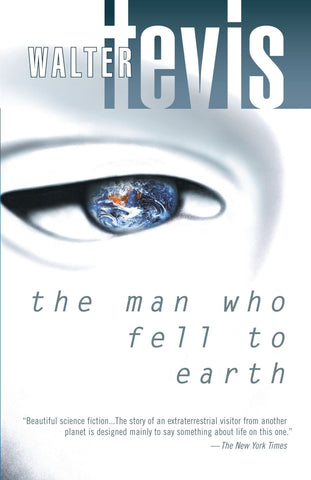Walter Tevis (1928-1984) is best known for his novel,The Hustler, which was made into an iconic Hollywood movie starring Paul Newman and Jackie Gleason, but this novel and The Color of Money were also made into movies, that is half of his six novels! His books have been translated into over a dozen languages. Born in San Francisco, Tevis moved to Madison County, Kentucky, the ancestral home of his parents, when he was eleven years old. It was only after serving in the Navy in the Pacific Theater during World War II that he graduated from Model High School in Richmond, Kentucky, and went on to UK to earn a bachelors and masters. He then earned an MFA at the prestigious Iowa Writers Workshop. He wrote for the Kentucky Highway Department and taught high school in four small Kentucky towns - including Irvine, the setting of this book - before teaching at the college level three places and then establishing a thirteen-year career at Ohio University. James Sallis wrote this about The Man Who Fell to Earth, Tevis's second novel, "On the surface, Man is the tale of an alien who comes to earth to save his own civilization and, through adversity, distraction, and loss of faith ("I want to... But not enough"), fails. Just beneath the surface, it might be read as a parable of 1950s conventionalism and of the Cold War. One of the many other things it is, in Tevis's own words, is "a very disguised autobiography," the tale of his removal as a child from San Francisco, "the city of light," to rural Kentucky, and of the childhood illness that long confined him to bed, leaving him, once recovered, weak, fragile, and apart. It was also – as he realized only after writing it – about his becoming an alcoholic. Beyond that, it is, of course, a Christian parable, and a portrait of the artist. It is, finally, one of the most heartbreaking books I know, a threnody on great ambition and terrible failure, and an evocation of man's absolute, unabridgeable aloneness."
New York: Ballantine, 1999. Trade paperback.
